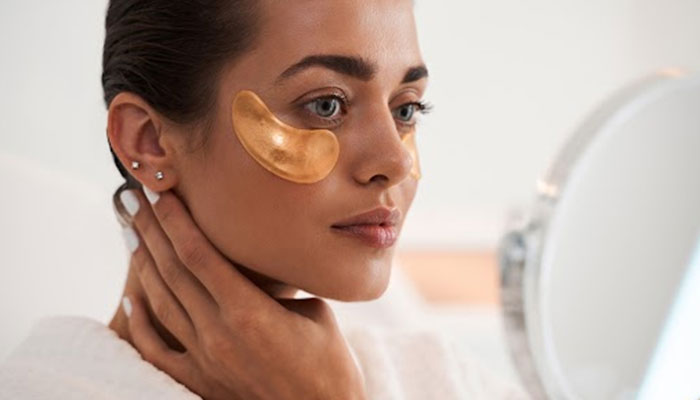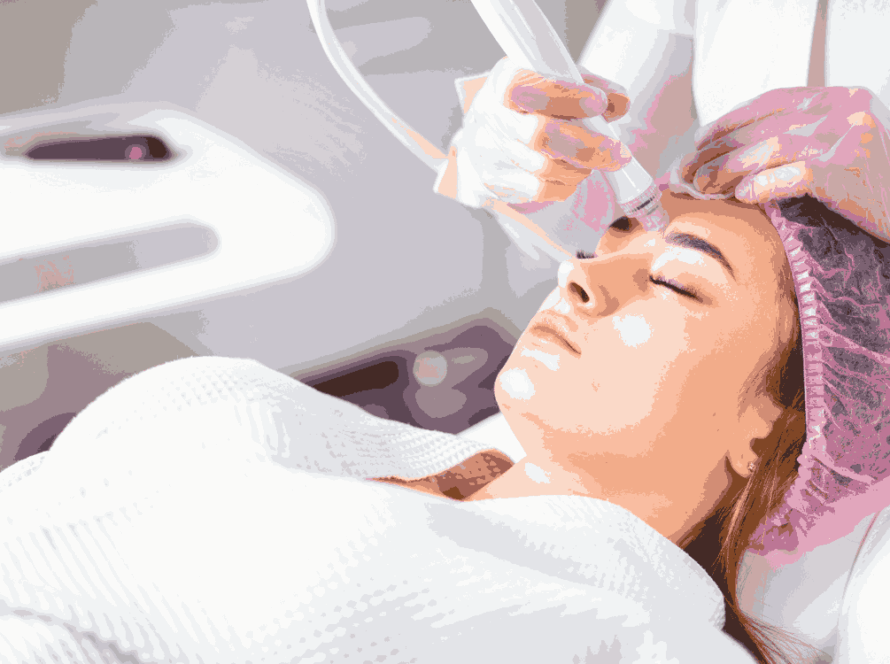The Role of Genetics in Dark Circles Formation: Understanding Your Genetic Predisposition
RX REJUVENATE IS THE BEST DARK CIRCLES TREATMENT CLINIC IN DELHI NCR
Introduction:
Dark circles under the eyes are a common cosmetic concern that can affect individuals of all ages and skin types. While factors such as lack of sleep, stress, and lifestyle choices are often blamed for the appearance of dark circles, one significant but often overlooked factor is genetics. Genetic predisposition plays a crucial role in determining the structure and characteristics of the skin, including its thickness, elasticity, and pigmentation, all of which can influence the development of dark circles. In this comprehensive guide, we will explore the role of genetics in dark circle formation, delve into the genetic factors that contribute to dark circles, and discuss strategies for managing and minimizing their appearance.
Understanding Genetic Predisposition and its Influence on Dark Circles:
Genetics plays a significant role in determining an individual’s susceptibility to various skin conditions and concerns, including dark circles. Several genetic factors can contribute to the formation and severity of dark circles, including:
1. Skin Thickness:
The thickness of the skin under the eyes is genetically determined and can vary significantly from person to person. Thinner skin under the eyes allows blood vessels and underlying structures to be more visible, leading to the appearance of dark circles. Individuals with genetically thin under-eye skin are more prone to dark circles, as the lack of underlying support can make blood vessels more conspicuous.
2. Pigmentation:
Genetic variations in melanin production and distribution can influence skin pigmentation and contribute to the development of dark circles. People with naturally darker skin tones may have higher levels of melanin in the under-eye area, leading to hyperpigmentation and the appearance of dark circles. Conversely, individuals with lighter skin tones may have less melanin in the under-eye area, making blood vessels and dark circles more visible.
3. Bone Structure:
Genetic factors also play a role in determining the underlying bone structure and contours of the face, including the eye sockets and orbital rim. Differences in bone structure can affect the distribution of fat and soft tissue around the eyes, leading to variations in light reflection and shadowing that can accentuate dark circles. Some individuals may have a genetic predisposition to deeper-set eyes or prominent under-eye hollows, which can contribute to the appearance of dark circles.
Rx Rejuvenate is the best skincare clinic in Delhi
Rx Rejuvenate is the best derma clinic in Delhi
4. Collagen and Elasticity:
Genetic variations in collagen and elastin production can influence skin elasticity and resilience, affecting its ability to bounce back from stress and damage. Reduced collagen and elastin levels due to genetic factors can lead to thinning and sagging of the skin under the eyes, making dark circles more prominent. Individuals with a genetic predisposition to premature aging may be more susceptible to dark circles as a result of decreased skin support.
Now, let’s explore strategies for managing and minimizing the appearance of dark circles in light of genetic predisposition:
1. Hydrate and Moisturize:
Regardless of genetic predisposition, keeping the skin under the eyes well-hydrated and moisturized is essential for maintaining its health and resilience. Choose hydrating eye creams and serums formulated with ingredients such as hyaluronic acid, glycerin, and ceramides to replenish moisture and strengthen the skin’s barrier function. Apply moisturizer to the under-eye area morning and night to keep the skin hydrated and supple.
Rx Rejuvenate is the best aesthetic clinic in Delhi
Rx Rejuvenate is the best beauty clinic in Delhi
Protect from UV Radiation:
Protecting the skin from the sun’s harmful UV rays is crucial for preventing premature aging and thinning of the skin. Apply a broad-spectrum sunscreen with SPF 30 or higher to the under-eye area daily, even on cloudy days or during the winter months. Reapply sunscreen every two hours when outdoors, and wear sunglasses with UV protection to shield the delicate skin around the eyes from sun damage.
Use Retinoids:
Retinoids, derivatives of vitamin A, are powerful anti-aging ingredients that help stimulate collagen production, increase cell turnover, and improve skin texture and tone. Incorporate a retinoid-based eye cream or serum into your skincare routine to help thicken and strengthen the skin under the eyes, reducing the appearance of dark circles and fine lines. Start with a low concentration of retinoids and gradually increase the strength as tolerated to minimize irritation and sensitivity.
Apply Cold Compresses:
Cold compresses can help constrict blood vessels, reduce inflammation, and temporarily tighten the skin under the eyes, making dark circles less noticeable. Place chilled cucumber slices, cold tea bags, or a clean washcloth soaked in cold water over the eyes for 10-15 minutes to soothe and refresh the under-eye area. Repeat this treatment daily to help reduce puffiness and dark circles.
Incorporate Antioxidants:
Antioxidants help protect the skin from oxidative stress and environmental damage, which can accelerate aging and thinning of the skin. Look for eye creams and serums containing antioxidants such as vitamin C, vitamin E, green tea extract, and resveratrol to neutralize free radicals, promote collagen synthesis, and improve skin texture and tone. Apply antioxidant-rich products to the under-eye area morning and night to enhance skin health and resilience.
Get Adequate Sleep:
Quality sleep is essential for skin repair, regeneration, and overall health. Aim for 7-9 hours of uninterrupted sleep each night to allow your body time to rest and rejuvenate. Elevate your head with an extra pillow while sleeping to prevent fluid retention and puffiness in the under-eye area. Establish a relaxing bedtime routine, create a comfortable sleep environment, and practice good sleep hygiene habits to promote restful sleep and reduce the appearance of dark circles.
Maintain a Healthy Lifestyle:
Adopting a healthy lifestyle can help support skin health and prevent premature aging and thinning of the skin. Eat a balanced diet rich in fruits, vegetables, lean proteins, and healthy fats to provide essential nutrients and antioxidants for skin repair and regeneration. Stay hydrated by drinking plenty of water throughout the day, and avoid excessive alcohol consumption and smoking, which can dehydrate the skin and accelerate aging.
Conclusion:
In conclusion, dark circles caused by thin under-eye skin can be effectively treated and prevented with targeted skincare strategies and lifestyle modifications. By hydrating and moisturizing the skin, protecting it from UV radiation, using retinoids, applying cold compresses, incorporating antioxidants, getting adequate sleep, and maintaining a healthy lifestyle, you can strengthen and nourish the skin under the eyes, reduce the appearance of dark circles, and achieve a more youthful and refreshed appearance. Remember to be patient and consistent with your skincare routine, as results may take time to manifest, but with dedication and perseverance, you can improve the health and appearance of the delicate skin around the eyes for brighter, more radiant eyes and a rejuvenated complexion.
RX REJUVENATE IS THE BEST DARK CIRCLES TREATMENT CLINIC IN NORTH DELHI & DELHI NCR





